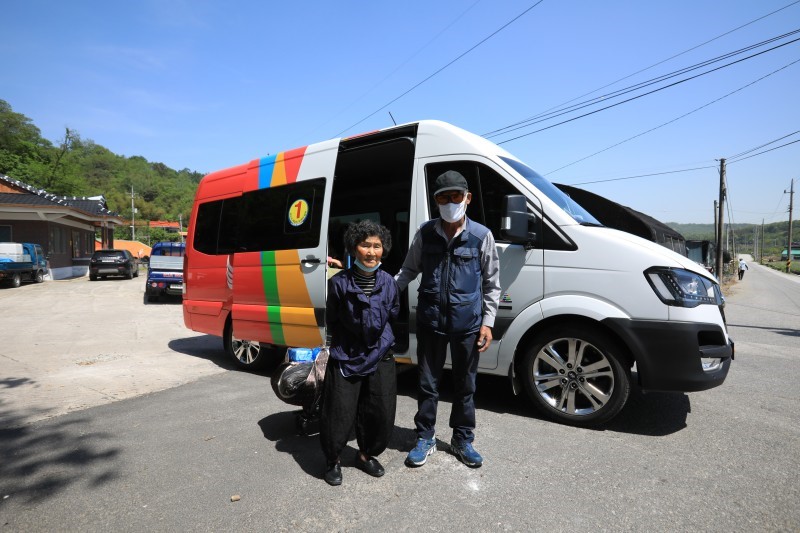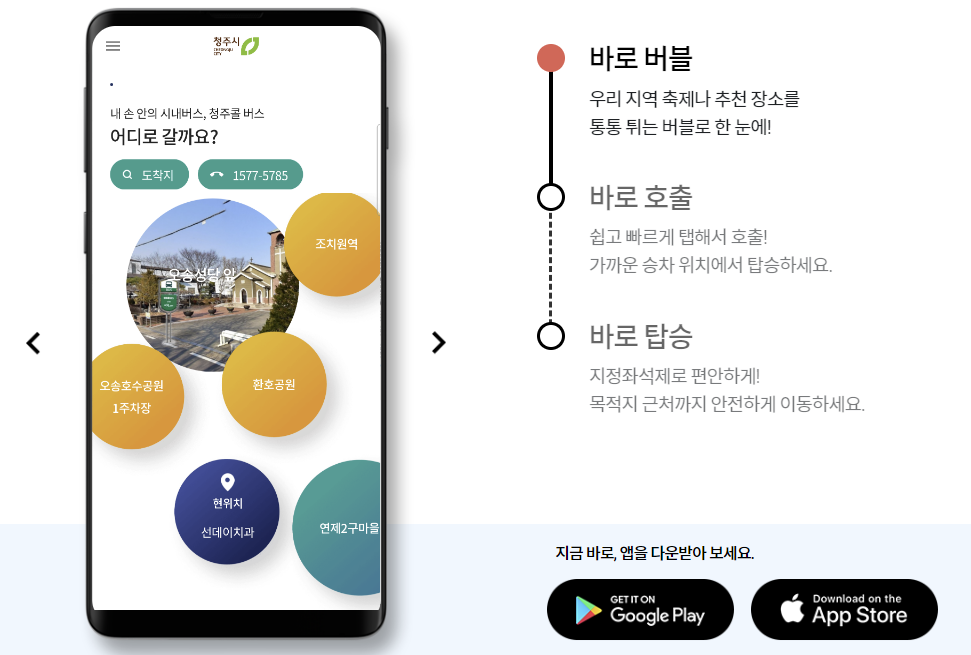Innovative Bus Services Promoting the Mobility Rights of Older Persons
Social and cultural activities play a crucial role in enhancing the quality of life of older people, as they provide a sense of social belonging and interaction with others. The right to mobility is an important human right that enables older adults to participate in social and cultural activities. According to the 2020 Survey of the Elderly conducted by the Ministry of Health and Welfare, 25 percent of older people face difficulty using stairs or ramps, while 19 percent struggle with using buses. Although cars are a convenient mode of transportation, a car is not an option for those individuals who cannot afford to buy one, or who are physically unable to drive. To address this issue, various policies and projects are being implemented to secure the mobility rights of older persons along with other transportation-disadvantaged groups. For instance, localized city buses, and projects using taxis such as 'Happy Taxi', '100 won taxi', 'Dementia Relief Taxi', have been introduced. This report aims to describe several innovative bus services that promote older persons’ right to mobility.

■Iksan's demand-responsive 'Happy Call Bus'
Iksan City, Jeollabuk-do, entered the ‘super-aged society’[1] in February 2023,[2] when the number of people aged 65 or older reached 60,339, accounting for 22.1 percent of the total population. In anticipation of this, Iksan City launched the ‘Happy Call Bus’ project in 2019. The project introduced a demand-responsive bus that replaces traditional buses with a 15-seater minivan that allows users to make reservations by phone one hour in advance. The Happy Call Bus offers greater flexibility in terms of service routes and operating hours, ensuring the service reaches every inch and corner of the town. Initially launched in Yeosan-myeon, the Happy Call Bus service has expanded its routes to villages in Osan-myeon. Currently, the service operates a total of three 15-seater minivans for 38 villages in Yeosan-myeon and one in 49 villages in Osan-myeon. The bus fare is 300 won per person, which is approximately 18 percent of the city bus fare in Iksan.
Once a reservation has been made by phone, the Happy Call Bus arrives at a nearby community center an hour later, picks up passengers and drives them to a terminal station for convenient onward transfer. The bus service has been well-received by the residents of Iksan City, particularly older people and those living in transportation blind spots. The service has accumulated over 90,000 rides since its launch in 2019. The primary users are seniors aged 65 and older who visit hospitals, markets, and banks in their towns. Although some senior residents initially complained of confusion when using the service, the number of daily users has increased significantly, from an average of 14.7 in 2019 to 91.9 in 2022, indicating the success of the service. The Happy Call Bus has improved public transportation accessibility and convenience for older persons in Iksan City while improving the rural bus operation system economically and efficiently.

The 'Cheongju Call Bus' project in Cheongju City is another example of promoting the mobility rights of older persons in rural areas. Launched in 2023, this project offers real-time booking through an app or phone call, which allows users to call the bus to take them to their respective destinations from various points. Artificial Intelligence then creates the best route in real-time and distributes passengers accordingly. The pilot project in Oseong-eup was conducted in October 2022, and saw a reduction in bus waiting times for passengers living in rural areas of Oseong-eup from an average of 85 minutes to 20 minutes; ridership increased by 2.7 times. Based on the success of the pilot project, Cheongju City has expanded the service to all towns and villages from February 2023. The Cheongju Call Bus project is a highly innovative solution that promotes and ensures the mobility rights of older persons.
Public transportation, such as buses, subways, and taxis, plays a critical role in older adults' mobility, with 70.9 percent relying on it as their primary mode of transportation. However, inadequate public transportation facilities may hinder their mobility, limiting their ability to access vital services and engage in social activities. As the population continues to age, neglecting older persons’ right to mobility is a flagrant violation of one of the most basic human rights. Violation of the mobility rights of older persons may lead to their isolation and marginalization, further restricting their social interaction and their ability to visit desired locations. Thus, the innovative solutions offered by the Happiness Call Bus and the Cheongju Call Bus exemplify best practices that recognize the right to mobility as a fundamental human right of older persons.
[1] The United Nations categorizes a country as an ‘ageing society’ if the proportion of people aged 65 years or more ranges between 7 and 14 percent of the total population, an ‘aged society’ if this proportion is between 15 and 20 percent, and a ‘super-aged society’ if this share is 21 percent or higher.
[2] Iksan City Hall, Population Status of Iksan City, February 2023.
Haeri Kang (haerikang@asemgac.org)